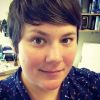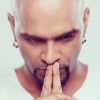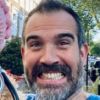15 Best-Selling Science Books Millions Love
Recommended by Mark Zuckerberg, Heidi N. Moore, and Jacquelyn Gill, these Science books offer expert-backed insights and proven impact.







There's something special about books that both critics and crowds love, especially in Science where understanding shapes our view of the world. When millions of readers and top experts agree on a title, it signals a proven value that goes beyond theory. Science matters now more than ever as we navigate misinformation and strive for clarity, making these widely-read books a beacon of knowledge and insight.
Experts like Mark Zuckerberg, who appreciates deep analyses on scientific progress, and Heidi N. Moore, who values accessible neuroscience insights, have championed these works. For example, Jacquelyn Gill found Carl Sagan's The Demon-Haunted World essential in cutting through today's misinformation fog. Their endorsements highlight how these books resonate with both professional and curious audiences alike.
While these popular books provide proven frameworks, readers seeking content tailored to their specific Science interests might consider creating a personalized Science book that combines these validated approaches with your unique learning goals and background.
Recommended by Jacquelyn Gill
Associate Professor, Climate Change Institute
“@JacobaHollander It’s a great book!” (from X)
by Carl Sagan··You?
by Carl Sagan··You?
Carl Sagan challenges the conventional wisdom that science is just a collection of facts by revealing it as a vital way of thinking that protects society from superstition and misinformation. Through vivid examples, like his analysis of pseudoscience and critical thinking tools such as the "baloney detection kit," you learn to question assumptions and recognize flawed reasoning in everyday life. The book suits anyone curious about how science underpins democratic societies and why skepticism matters today, especially amid widespread misinformation. Chapters covering the history of scientific thought and the dangers of abandoning it provide concrete insights that sharpen your analytical mindset.
Recommended by Chris Oliver
Retired surgeon and physical activity innovator
“What a great read! You could almost pass your surgical exams after reading this book! The Body: A Guide for Occupants by Bill Bryson.” (from X)
by Bill Bryson··You?
by Bill Bryson··You?
What if everything you thought about the human body was only the surface? Bill Bryson, known for his engaging travel and science narratives, takes you on a detailed journey inside your own anatomy, exploring how it functions, heals, and sometimes falters. You gain insights into complex biological processes explained through memorable anecdotes and fascinating facts, like how your body constantly renews itself. This book suits anyone curious about biology or seeking a readable, fact-rich guide to their own physiology without wading through dense textbooks.
by TailoredRead AI·
This personalized book explores a tailored journey through science mastery, combining widely validated knowledge with your unique challenges and interests. It covers essential scientific concepts, practical applications, and critical thinking techniques that millions of readers have found valuable. By focusing on your individual background and goals, this book reveals approaches and insights that align specifically with your learning path, making complex ideas accessible and relevant. It examines how scientific principles can be applied effectively to your pursuits, encouraging an engaging and focused learning experience. The tailored content helps you dive deeply into topics that matter most to you, ensuring a meaningful and efficient exploration of science.
Recommended by Daniel Gilbert
Professor of Psychology, Harvard University
“A brilliant and original book on the science of emotion, by the deepest thinker about this topic since Darwin.” (from Amazon)
by Lisa Barrett··You?
Lisa Feldman Barrett challenges the conventional wisdom that emotions are hardwired and universal, arguing instead that they are constructed by the brain through an interplay of body and culture. You’ll uncover how emotions emerge from predictions your brain makes, reshaping your understanding of psychology and neuroscience. The book explores implications for health care, law, and society, offering insights into the mechanics behind feelings rather than just their expressions. If you’re curious about how your mind crafts emotional experience and want to rethink common assumptions about emotions, this book provides a fresh perspective grounded in extensive research.
Recommended by Robert Crease
Coauthor of The Quantum Moment
“This is the clearest and most insightful description of quantum enigmas that I have ever read. I kept being astonished at how Ball seemed to make one mystery after another vanish. He makes quantum mysteries disappear without removing their uncanniness. Brilliant and innovative, Beyond Weird may alter how quantum mechanics is taught not only to the public but also to physicists. I suspect that teachers of introductory quantum mechanics will be paraphrasing or outright quoting this book for decades.” (from Amazon)
by Philip Ball··You?
While working as an editor at Nature for over two decades, Philip Ball noticed how quantum physics often baffled both scientists and the public alike. In Beyond Weird, he unpacks why quantum mechanics defies everyday intuition by exploring its foundations as a theory about information and knowledge rather than just particles and waves. You’ll gain insights into why concepts like space, time, and causality are challenged at the quantum level, with clear explanations of competing interpretations, including the Many-Worlds theory. This book suits those curious about the nature of reality and eager to understand why quantum physics reshapes what we think we know about the world.
Recommended by Xand Van Tulleken
Medical and public health expert, TV presenter
“Lovely and very well-deserved review of Merlin Sheldrake’s amazing book Entangled Life — of mushrooms, magic and more via Financial Times; if you enjoy being alive you’ll love it” (from X)
by Merlin Sheldrake··You?
by Merlin Sheldrake··You?
What if everything you knew about fungi was wrong? Merlin Sheldrake, a biologist deeply engaged with underground fungal networks and fermentation, invites you to see fungi not merely as mushrooms but as vital, intelligent connectors shaping ecosystems and human life. You’ll explore how fungi challenge notions of individuality and influence our minds, health, and environment, with vivid examples from mycorrhizal networks to fungal roles in healing and environmental remediation. This book suits anyone curious about natural science who wants to rethink life's complexity beyond traditional biology.
by TailoredRead AI·
by TailoredRead AI·
This personalized book offers a focused 30-day journey into science, designed specifically to match your background and unique interests. It explores key scientific concepts and discoveries across multiple disciplines, combining popular knowledge with your chosen areas of focus. By addressing your specific goals, the book reveals insights that millions of readers have found valuable, presenting them in a way that resonates with your curiosity and prior knowledge. This tailored approach ensures an efficient learning experience, helping you build a solid understanding of science within a month. It covers foundational topics as well as advanced ideas, making complex subjects accessible and engaging.
Recommended by Bertalan Meskó
Director, Medical Futurist Institute; Amazon Top 100 author
“In his brilliant book, The Structure of Scientific Revolutions, author Thomas S. Kuhn explained how scientific discoveries take place: scientific paradigm shifts always begin with disruption – and it’s never an easy process.” (from X)
by Thomas S. Kuhn, Ian Hacking··You?
by Thomas S. Kuhn, Ian Hacking··You?
Thomas S. Kuhn, a philosopher of science at MIT, rethinks how scientific progress unfolds, arguing that breakthroughs happen through disruptive paradigm shifts rather than steady accumulation of data. You’ll explore concepts like "normal science," "paradigm," and "incommensurability," gaining insight into how scientific revolutions reorder our understanding of the world. Ian Hacking’s introduction updates Kuhn’s ideas for today’s biotech era, clarifying key terms and applying them to contemporary science. This book suits anyone curious about the forces that shape scientific knowledge, though it demands careful reading to appreciate its nuanced arguments.
Unlike most yoga books that focus solely on practice, Ann Swanson brings her extensive background in yoga therapy and anatomy to reveal the scientific mechanics behind each pose. You’ll gain detailed insights into how your muscles, joints, and respiratory system function during 30 key asanas, supported by clear CGI visuals and up-to-date research on yoga’s effects on the body. This book demystifies common yoga myths, explaining the benefits of different styles and breathing techniques with precision. Whether you’re refining your practice or curious about the medical science of yoga, this guide offers a grounded understanding that empowers you to practice with confidence and awareness.
Recommended by Ameer Rosic
Entrepreneur and blockchain investor
“Biomimcry should be mandatory learning when designing decentralized token economies. A must-read book!” (from X)
by Janine M Benyus·You?
by Janine M Benyus·You?
Janine M Benyus challenges the conventional wisdom that innovation must come solely from human invention by showing how nature’s 3.5 billion years of evolution offers a blueprint for solving modern problems. You’ll explore specific examples like how scientists mimic spider silk to develop new materials, or how studying leaf photosynthesis inspires cleaner energy technologies. The book takes you into labs and field sites where biomimicry pioneers translate biological strategies into practical solutions. If you’re curious about sustainable design or inspired by nature’s creativity, this book offers a grounded perspective on how biology informs science and technology today.
Recommended by Hussain Nadim
Executive Director at IPRI, policy and innovation leader
“Started 2022 by finishing this remarkable book on how our cells & the environment rule our life instead of the DNA that is generally believed. The belief or our internal story then becomes the most important pillar of all our life changes. Basically you are the master of you” (from X)
by Bruce Lipton (Author)··You?
by Bruce Lipton (Author)··You?
Drawing from his extensive background as a medical school professor and stem cell researcher at Stanford, Bruce Lipton challenges the deeply ingrained belief that DNA solely controls our biology. Instead, he presents evidence that signals from outside the cell, including thoughts and consciousness, play a decisive role in shaping our health and lives. You’ll explore how altering your conscious and subconscious mind can influence your biology, supported by experiments detailed in chapters on cell biology and quantum physics. This book suits those curious about the science behind mind-body connections and who want to reconsider the role of genetics in human potential.
Recommended by Mariette DiChristina
Editor in Chief, Scientific American
“Amir Levine and Rachel Heller have written a very smart book: It is clear, easy to read and insightful. It's a valuable tool whether you are just entering a relationship with a new partner or-as in my case--even after you've been married 21 years, and had thought you knew everything about your spouse.” (from Amazon)
by Amir Levine, Rachel Heller··You?
by Amir Levine, Rachel Heller··You?
Drawing from his experience as a psychiatrist and neuroscientist at Columbia University, Amir Levine teams up with Rachel Heller to explore how adult romantic relationships are shaped by attachment theory. You learn to identify your attachment style—anxious, avoidant, or secure—and how these patterns influence your interactions and emotional needs. The book walks you through practical ways to navigate relationships more wisely based on this understanding, with detailed examples that illuminate how evolutionary and psychological factors play out in everyday love. If you want to deepen your self-awareness and improve how you connect with partners, this book offers a clear map grounded in scientific research.
by Michio Kaku, Robert O'Keefe·You?
by Michio Kaku, Robert O'Keefe·You?
What if everything you knew about space and time was wrong? Michio Kaku, a pioneering theoretical physicist, explores this by delving into the concept of hyperspace and superstring theory, offering a vivid explanation of how these ideas might unify the fundamental forces of nature. You’ll engage with complex topics such as the tenth dimension, time warps, and parallel universes, presented in a way that invites curiosity without overwhelming. This book suits anyone fascinated by the cutting edge of physics and the quest for a unified theory, especially those comfortable with challenging scientific concepts and eager to see where modern physics might lead next.
by Daniel J. Levitin·You?
by Daniel J. Levitin·You?
Daniel J. Levitin challenges the conventional wisdom that music is merely entertainment, revealing how it deeply shapes brain function and human experience. Drawing on neuroscience and evolutionary psychology, he explains how musical preferences might begin before birth and how brain imaging uncovers our emotional responses to music. You’ll explore cases from cultures where singing is central to identity and rare disorders that disrupt musical perception, offering insights into nature and nurture’s role in our obsession with music. This book suits anyone curious about the intersection of art and science, though those seeking technical neuroscience may find its narrative approach more engaging than exhaustive.
Carl Sagan’s decades as an astronomer and science communicator shine through in this exploration of the universe’s vastness and our place within it. You’ll encounter detailed chapters on cosmic evolution—from the birth of galaxies to the emergence of life on Earth—and gain a richer understanding of scientific milestones and human curiosity. This book suits anyone fascinated by space, history, or the scientific method, offering insights into how we’ve come to comprehend the cosmos through observation and reason. Its blend of science, philosophy, and history invites you to reflect on human progress amid the immensity of the universe.
Brian Greene’s decades as a physicist shine through in this exploration of space and time, inviting you to rethink reality itself. You’ll navigate from Newton’s fixed universe to Einstein’s dynamic spacetime and dive into quantum puzzles like entanglement and teleportation. The book unpacks why time seems to flow one way and how the Big Bang’s conditions shaped this arrow. Chapters detailing superstring and M-theory open doors to an eleven-dimensional multiverse concept, challenging everyday assumptions. If you’re curious about the universe’s deepest layers and enjoy physics explained with wit and relatable analogies, this book offers a detailed yet accessible journey, though it’s best suited for those ready to engage with complex scientific ideas.
by Dr. Tara Swart·You?
by Dr. Tara Swart·You?
Drawing from her expertise as a neuroscientist and psychiatrist, Dr. Tara Swart explores the intersection of ancient manifestation techniques and modern brain science in this book. You discover how concepts like the Law of Attraction align with neuroscience principles such as neuroplasticity, emotional regulation, and behavioral psychology. For example, she discusses how hydration and relaxation influence brain function alongside visualization practices. This book suits anyone interested in understanding how mindset and brain health can influence personal growth and success, blending scientific insight with practical approaches to reshape thought patterns and unlock potential.
Proven Science Methods, Personalized ✨
Get proven popular Science strategies tailored to your interests and goals.
Trusted by thousands of Science enthusiasts worldwide
Conclusion
This collection reveals two clear themes: the power of critical thinking in science and the deep human curiosity about our bodies and universe. If you prefer proven methods, start with The Demon-Haunted World for sharpening skepticism or The Body for biological wonder. For validated approaches blending history, philosophy, and cutting-edge physics, The Structure of Scientific Revolutions and Beyond Weird offer rich perspectives.
Combining these books can deepen your understanding, but you can also create a personalized Science book to tailor these expert insights exactly to your needs. These widely-adopted approaches have helped many readers succeed in navigating the complexities of modern Science and its impact on daily life.
Frequently Asked Questions
I'm overwhelmed by choice – which book should I start with?
Start with The Demon-Haunted World by Carl Sagan; it offers a foundational understanding of scientific skepticism that sharpens your thinking for all other books.
Are these books too advanced for someone new to Science?
Not at all. Many books like The Body by Bill Bryson and Cosmos by Carl Sagan are written to engage curious beginners with clear, compelling narratives.
What's the best order to read these books?
Begin with accessible titles like The Body or Entangled Life, then explore more specialized topics like Beyond Weird or The Structure of Scientific Revolutions as your interest deepens.
Should I start with the newest book or a classic?
Both have value. Classics like The Structure of Scientific Revolutions provide timeless frameworks, while newer books like The Biology of Belief offer fresh perspectives on science's evolving frontiers.
Do I really need to read all of these, or can I just pick one?
You can certainly pick one that matches your interests, but these books complement each other well to build a richer understanding of Science from multiple angles.
How can I get Science knowledge tailored to my specific interests and level?
While these expert books offer broad insights, you might consider creating a personalized Science book that combines popular methods with your unique goals and background for a focused learning experience.
📚 Love this book list?
Help fellow book lovers discover great books, share this curated list with others!
Related Articles You May Like
Explore more curated book recommendations














